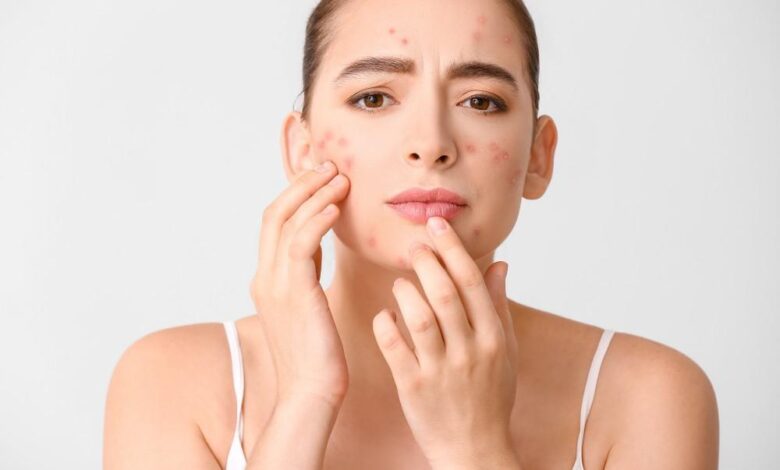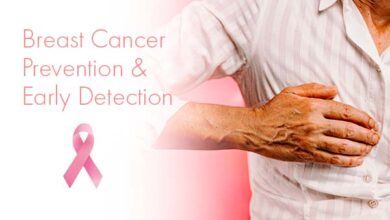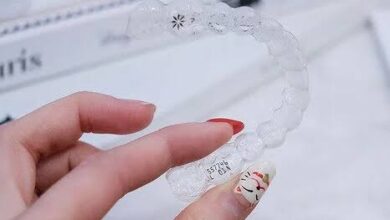Understanding and Managing Acne: Insights into Modern Treatment Techniques

Acne is a pervasive skin condition that affects a significant portion of the population, transcending age, gender, and ethnicity with its impact. It’s often misunderstood as a cosmetic inconvenience; however, its reach goes far beyond, impacting psychological well-being and daily interactions. In the quest for clear skin, a practical approach is a foray into acne treatment options, ranging from gentle natural solutions to potent formulations. One promising treatment avenue is targeted therapies such as acne dark spot treatment that address hyperpigmentation resulting from acne scars, marrying the need for healing and cosmetic improvement.
Beyond cosmetics, effective acne management involves various techniques solidly rooted in understanding the condition’s nature and the body’s response. Here, we’ll explore the causes and types of acne, the mental and emotional impacts, the importance of skincare regimens, and the role of lifestyle factors in treatment. This article outlines the path toward a clear and healthy complexion through informed decision-making and the latest insights into treatment protocols.
What Causes Acne?
Acne has many different and intricate causes. At its core, acne develops when hair follicles become clogged with a mixture of oil and dead skin cells, leading to inflammation and the growth of bacteria. Hormonal fluctuations, particularly during puberty, can exacerbate oil production, heightening the risk of developing acne. Moreover, certain medications, dietary choices, and even stress can influence acne’s severity and prevalence. A widespread misunderstanding is that excessive washing or use of harsh scrubs, which aggravate the skin and exacerbate acne, is the cause of acne.
Identifying Different Types of Acne
Acne manifests in various forms, each with distinct characteristics and treatment needs. The most common types of acne include comedones, which encompass blackheads and whiteheads resulting from the plugging of hair follicles. Inflammatory acne includes papules and pustules, typically red and swollen blemishes that may be tender to the touch. More severe forms, like nodules and cysts, occur more profoundly within the skin and may lead to scarring if not appropriately managed. Differentiating between these types is crucial for effective treatment, as each may respond differently to various therapies.
The Psychological Impact of Acne
The impact of acne extends much deeper than the skin. Those struggling with this condition often face challenges to their mental health, including decreased self-esteem and increased risk of depression and anxiety. Because acne is visible, it can cause social disengagement and negatively impact one’s quality of life, making it a psychological and dermatological issue. Bridging this gap requires a comprehensive treatment approach that addresses all facets of the condition.
Essential Skincare Tips for Acne-Prone Skin
Simplicity and appropriateness are paramount when it comes to skincare for acne-prone individuals. A gentle cleanser can help manage oil levels without stripping the skin of necessary moisture. Moisturizers and sunscreens labeled ‘non-comedogenic’ can hydrate the skin, minimizing the likelihood of congesting pores. Being selective with skin care products is critical, as choosing too harsh formulations can exacerbate acne symptoms. The American Academy of Dermatology advises using products that support skin health without causing irritation or breakouts.
Emerging Acne Treatments
The landscape of acne treatments is rapidly evolving, with the advent of new technologies and research regularly introducing innovation to the field. From refined topical treatments boasting novel active ingredients to advanced laser therapy, these burgeoning modalities offer fresh hope to those who have not succeeded with traditional methods. Likewise, natural remedies are gaining traction as people seek alternatives with fewer side effects. Such treatments cater to a growing demand for holistic approaches that align with personal preferences and long-term health considerations.
Understanding Over-The-Counter vs. Prescription Options
Deciphering the most appropriate course of action for acne treatment often starts with understanding the spectrum of available options. Over-the-counter (OTC) products, which can be purchased without a prescription, can be effective for mild acne. Typically, they contain chemicals like salicylic acid or benzoyl peroxide, which increase cell turnover and decrease oil production. However, prescription medications prescribed by a dermatologist may be necessary for moderate to severe acne or acne that doesn’t respond to OTC treatments. These might include topical retinoids, antibiotics, or even oral medications designed to target acne at its source.
Lifestyle Adjustments for Supporting Acne Treatment
While topical treatments and medications are paramount, lifestyle factors also play an integral role in acne management. As advised by WebMD’s observations, a well-balanced diet reduced in dairy and refined sweets may lessen the frequency and intensity of acne breakouts. Hydration, regular exercise, and sufficient sleep can help the body regulate hormones and reduce stress, potentially mitigating acne. Ultimately, the synergy between an attentive skincare routine and a thoughtful lifestyle creates the bedrock for effectively combating acne.
Long-Term Skin Care Strategies Beyond Acne
Maintaining healthy skin after overcoming acne requires transitioning from a short-term, symptom-focused mindset to a long-term, wellness-oriented one. This includes staying attuned to the skin’s changing needs with age and adjusting skincare regimens accordingly. Using products that aid in skin regeneration and protect against environmental damage is essential in preserving skin health. Additionally, regular screenings with a dermatologist can detect any long-term effects of acne treatment and guide adjustments in skincare routines as needed.
Moving Forward: Taking Charge of Your Skin Care Journey
Dealing with acne is a journey of patience, understanding, and resilience. It is about accepting what you cannot change while actively addressing what you can through informed choices in treatment and care. Empowerment through education and proactive approaches forms a beacon for those navigating the complexities of acne. By staying abreast of the latest advancements, adopting balanced lifestyle habits, and not shying away from seeking professional advice, individuals can take charge of their skin and embark on a path to sustained well-being. Ultimately, managing acne is not just about clear skin; it’s about realizing the fuller picture of health and confidence.
With these insights, the way forward becomes more transparent and hopeful. As the understanding of acne grows and treatment methodologies improve, the promise of managing acne effectively is becoming an increasingly attainable goal. By becoming informed stewards of our skin health, we open the door to a future where acne’s impact is minimal and vibrant; healthy skin is the enduring reward.



